General introduction
The Faculty of Advanced Science and Technology was established under Decision No. 585/QD-ĐHĐN dated February 8, 2018 by the President of the University of Danang to directly manage, operate and develop International cooperative training programs of University of Science and Technology - University of Danang include: Vietnam - America Advanced Program and Vietnam - France High Quality Engineers Training Program (PFIEV).
I. The advanced program was formed on the basis of the national project "Training according to advanced programs at some Vietnamese universities in the period 2008 - 2015" of the Ministry of Education and Training. Accordingly, the advanced program is built on the basis of training programs of famous universities in the world, including contents, methods, processes of training organization and management, and is taught in English
The training major of the Advanced Program under the Faculty of Advanced Science and Technology include:
1) Electronics and Telecommunication, using the training program of the University of Washington (UW), USA. UW's Electronics and Telecommunications industry is ranked in the top 18 of the Electronics and Telecommunication industries worldwide.
2) Embedded Systems, using the training program of Portland State University (PSU), USA. PSU's Embedded Systems major is ranked as one of America's 10 preeminent training programs.
II. The Vietnam-France High-Quality Engineers Training Program (PFIEV) was formed on the basis of a cooperation program between the Government of Vietnam and the Government of the French Republic according to the secret protocol dated November 17, 1997 between the Ministry of Education and Training. Education and Training and Ambassador of the French Republic in Vietnam. Participating in the PFIEV Program in Vietnam includes: Hanoi University of Science and Technology, Hanoi University of Civil Engineering, University of Science and Technology - University of Danang and University of Science and Technology - Vietnam National University, Ho Chi Minh City. The training disciplines of the PFIEV Program are built based on the training framework of the partner schools from France.
The training majors of the PFIEV Program under the Faculty of Advanced Science and Technology include:
1) Automatic Manufacturing (belong to Mechanical Engineering) is built from the training program of the partner school, Grenoble Polytechnic University (Institut National Polytechnique de Grenoble).
2) Industrial Informatics (belong to electrical engineering) is built from the training program of the partner school, the Institut National Polytechnique de Grenoble.
3) Software Engineering (belong to Information Technology ) is built from the training program of the partner school, Aix Marseille University (Polytech Marseille, Université d'Aix Marseille)
History of establishment and development
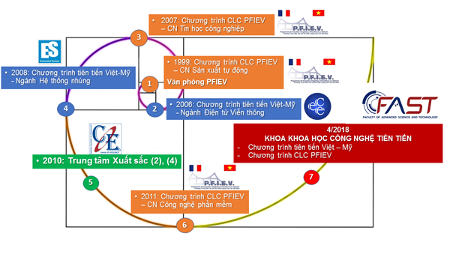
Educational philosophy
“Thinking, Creating and Humanity Cherishing"
Vision - Mission
Vision: The Faculty of Advanced Science and Technology will become a pioneer in international training, research, innovation and entrepreneurship by 2030.
Mission: Training internationally recognized high-quality technical human resources to meet the needs of Industry 4.0; Building a foundation of knowledge, skills and attitudes for lifelong learning; Improve research capacity and transfer technology and knowledge for the development of the community
Core values: Innovating, creating for a progressive life
Infrastructure
CLASSROOM SYSTEM
The Lecture hall system is built to meet the requirements of facilities for the Advanced Program according to the project promulgated by the government in 2008 with a total area of 381 m2 including 5 classrooms and 02 halls. These lecture halls meet the requirements of teaching and research, and the activities of small-scale clubs. In 2010, the lecture halls were equipped with a high-speed wireless network system covering the entire campus of CTTT, enhancing the capacity of facilities for teaching. In addition, advanced program can use the large halls of DUT, with a capacity of up to 500 seats to serve the needs of organizing seminars of lecturers or cultural activities of students. In addition, in order to meet the needs of students for self-study and research, from 2015, the advanced program also arranged a self-study room right next to the internal library, creating a self-study and group discussion environment for students.
Over the years, the lecture system of the advanced program has been increased in number to meet the increasing number of students over time. Especially in 2014, a multimedia classroom support online learning was built. The goal of building this classroom is to help optimize teaching time, so that teachers can focus more on teaching and research. For students, this solution will provide access to the teaching system and distance learning content from anywhere, at any time of the day.
DISTANCE LEARNING STUDIO
Completed and put into use in 2015, the DLS digital classroom with modern facilities and stable network infrastructure, fully meets international standards to serve seminars and online meetings. In addition, the digital classroom is also an ideal space for group teaching and learning.
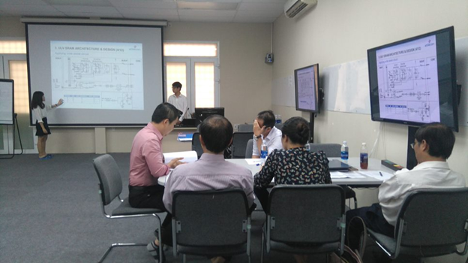
Self-study area
After studying in the lecture hall, the self-study area is a great space for students to gather in groups to discuss present problems and find solutions together.
Coming to the campus of the Faculty of Advanced Science and Technology, students have many self-study areas with quiet space, very suitable for studying and pondering.
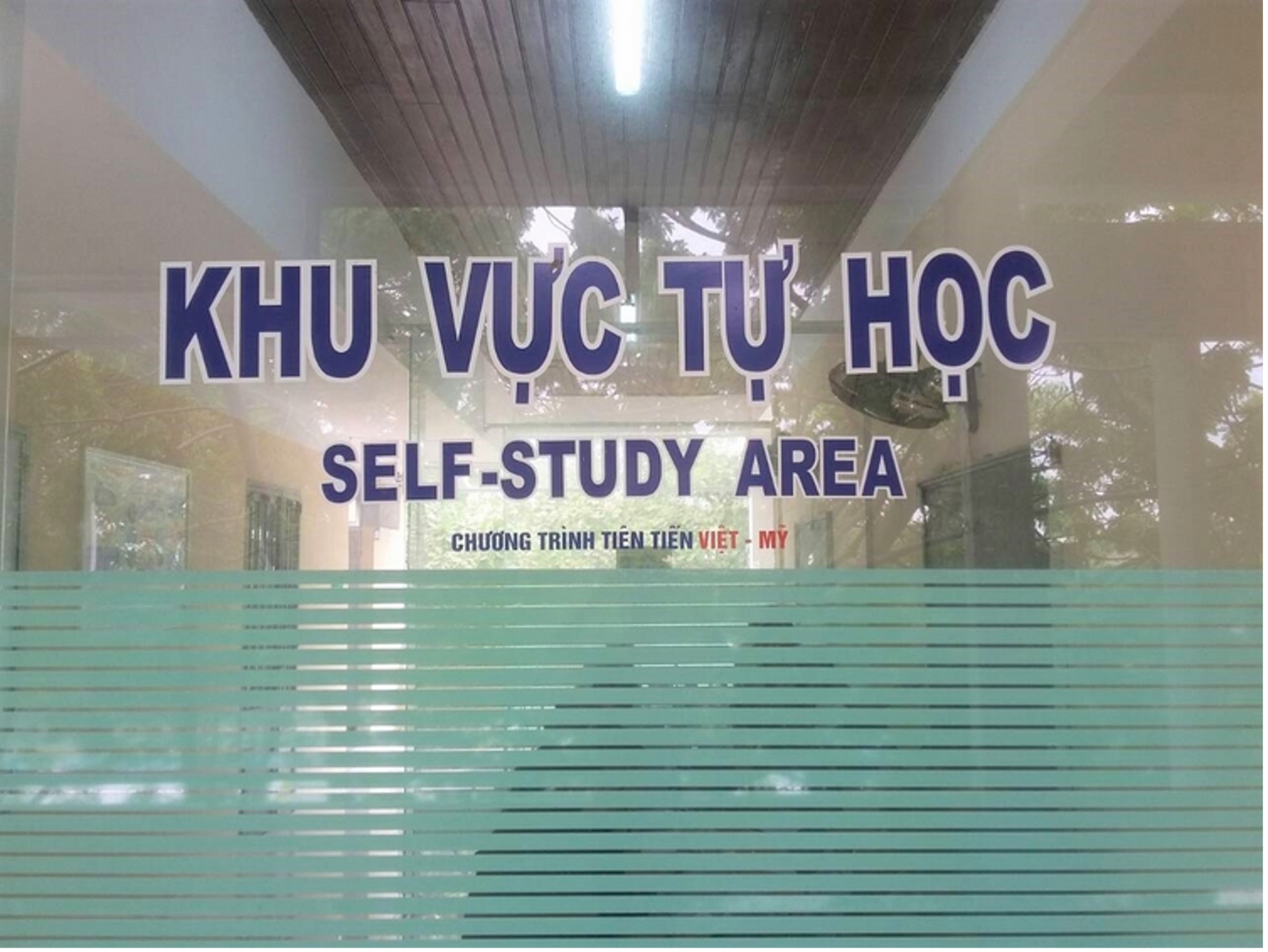
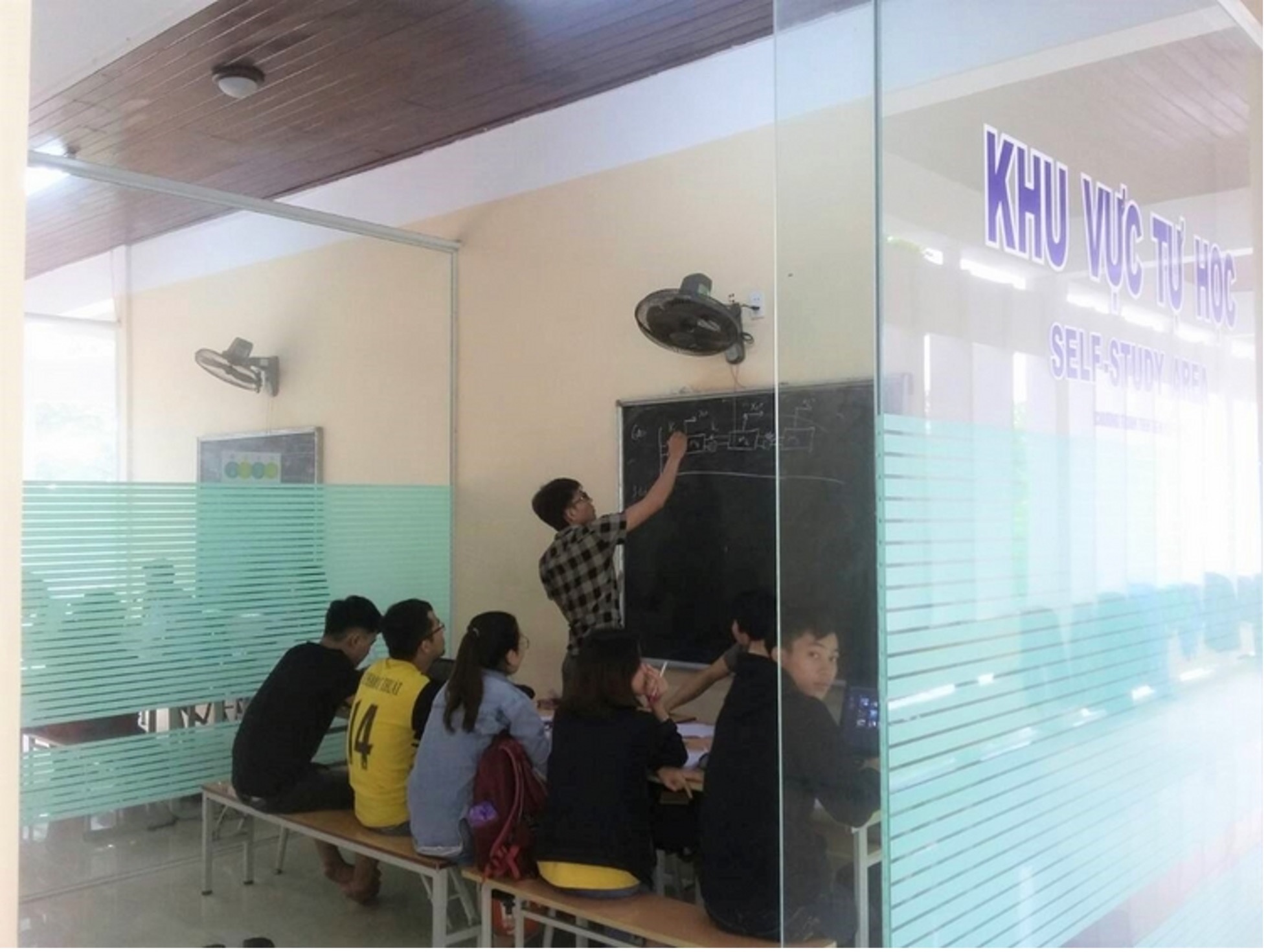
ENTERTAINMENT AND COLLECTIVE ACTIVITY SPACES
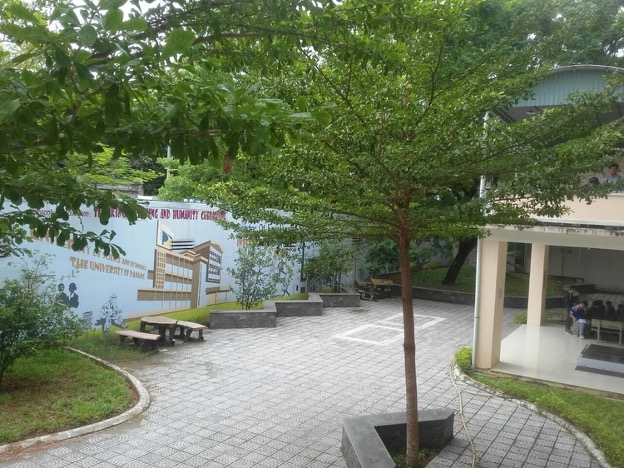
LIBRARY
Currently, the Faculty of Advanced Science and Technology has its own internal library with rich learning resources: 100% complete textbooks and reference books; the library is equipped with air conditioning, internet, 1 photocopier, 1 computer to look up data and 1 library staff; a self-study room with a full table and chairs adjacent to the library. The self-study room is open 8 hours a day from Monday to Friday. The library serves students to borrow books from Tuesday, Wednesday and Friday every week.
In addition, students and lecturers of the Faculty of Advanced Science and Technology can also use a rich source of learning materials from 2 learning resource centers of the University of Danang, one of which is located in the center of Da Nang. campus of Bach Khoa University. The campus at the University of Technology has 4 floors with 1000 seats, 250 search computers, 130 newspapers and magazines, 3800 theses, doctoral theses, 1300 references, 51,000 monographs, 47,000 documents hardcopy textbooks in many different languages and 947 separate reference books for students. The Learning Resource Center also has electronic resources with a system of open document repositories and electronic databases such as: Proquest Central, Hinari, Agora, Ardi, scientific database of the National Bureau of Science and Technology Information, database of the World Bank. Students and lecturers can come to the Center to look up documents from 7:30 a.m. to 5:30 p.m. every day of the week, except Sunday.
In order to build up a complete resource like today, following the training program, the Faculty of Science and Technology Advanced has continuously upgraded and updated its internal library every year from various sources: books purchased from the program's budget ; international scientific journals, proceedings of the student conference on scientific research, TI Contest, books donated by agencies and organizations, and textbooks provided by lecturers. The number of textbooks for study and reference at the private library is updated annually from 60% of textbooks for the 2007 training program to 95% of textbooks, 80% of reference books in 2008, and 100% of textbooks in 2014. In 2015, the advanced program initially researched and developed a barcode system to better and more effectively manage the borrowing and returning of books by students and lecturers.
LABORATORIES
Laboratory of General Electronics and Embedded Systems (C115)
The Laboratory of General Electronics and Embedded Systems has been in use since 2011. The laboratory is equipped with measuring devices, source generators, pulse generators, waveform analyzers, etc., which meet the laboratory standards of the partner school. By 2012, within the framework of cooperation between enterprises and schools, the laboratory was equipped with 50 additional MSP430F4618 programming kits, 50 Stellaris ARM Cortex-M3 programming kits and a copyright of the Code Composer Studio v4 programming tool. 0.
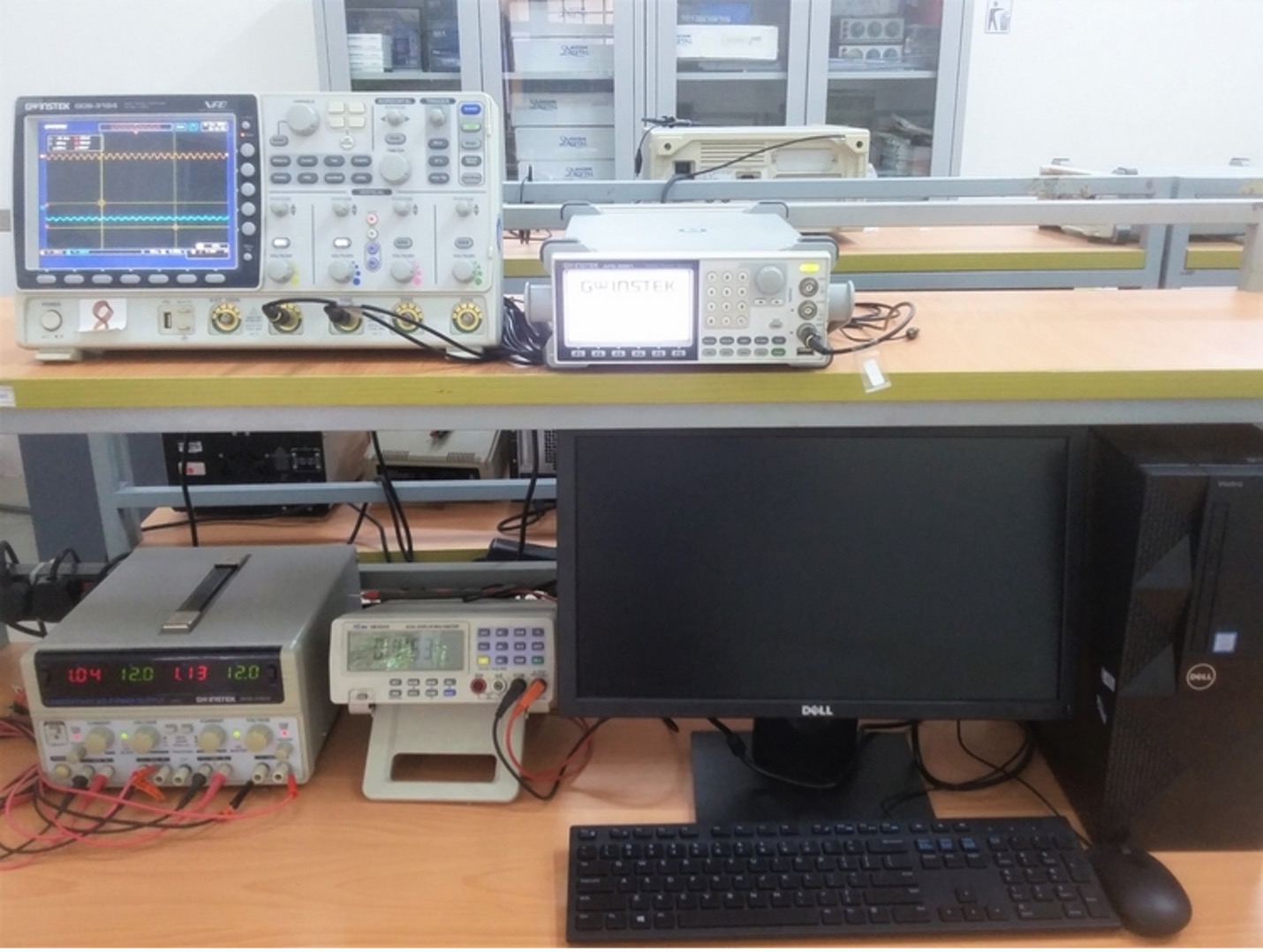
Currently, the laboratory is capable of meeting the needs of experimental practice of the following subjects:
- Basic electrical engineering
- Circuit theory
- Circuits and Digital Systems
- Electronic devices and circuits I
- Electronic devices and circuits II
- Embedded microcomputer system
Telecommunications Laboratory (C116)
The Telecommunications Laboratory was officially put into use in November 2011 under the Government's Target Project 2011 program.
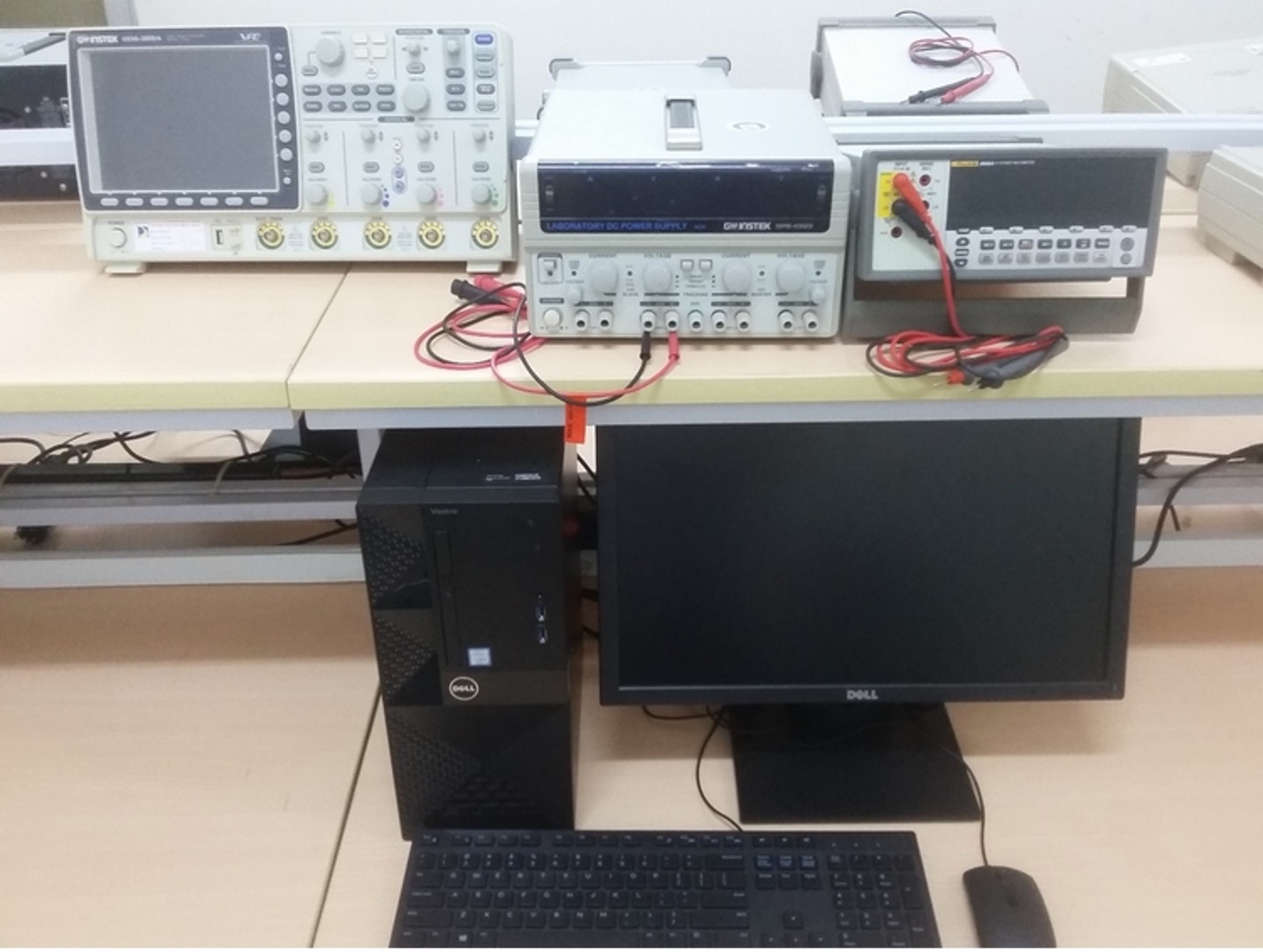
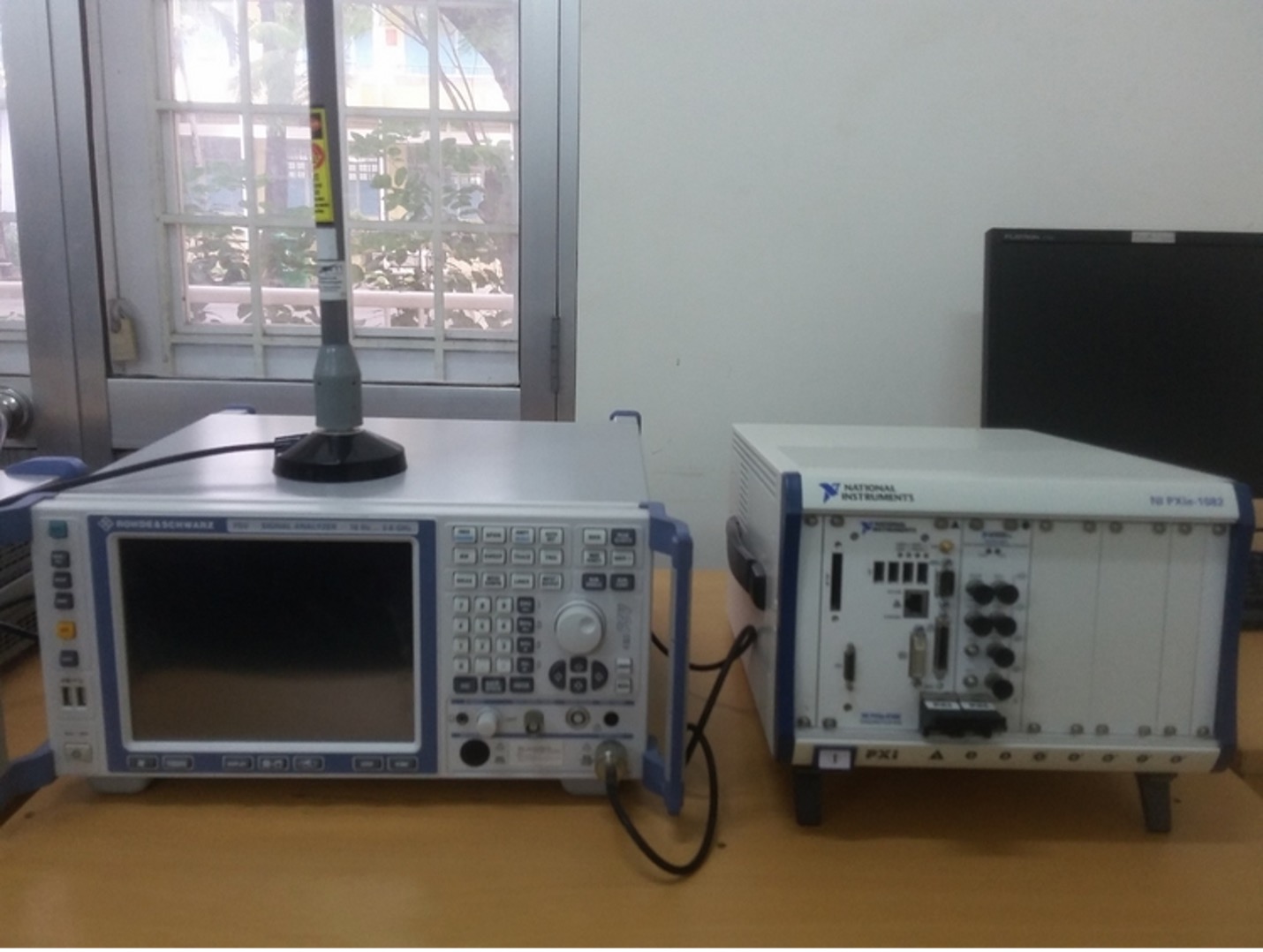
Currently, the laboratory is capable of meeting the needs of experimental practice of the following subjects:
- Exploiting and using modern equipment, specialized machinery, and the most advanced and accurate measuring instruments in the world in order to gradually bring Da Nang University of Science and Technology to a worthy position on scientific forums domestic and abroad in the fields of 4G wireless technology in particular and the telecommunications industry in general.
- The laboratory was born to serve undergraduate, postgraduate teaching and scientific research with the goal of increasing the number of scientific articles published in domestic and foreign scientific journals. In addition, the long-term goal of the laboratory is to build many research cooperation with telecommunications firms and foreign advanced universities.
Microelectronics & IC Design Lab (C213)
Microelectronics & IC Design Lab, sponsored by Intel Corporation and the Ministry of Education, has been in use since 2006, equipped with 40 high-configuration PCs, meeting the requirements of practical exercises for students as well as the scientific research needs of lecturers. By 2012, the Computer lab was equipped with Virtuoso integrated circuit design tool under the sponsorship of Cadence company within the framework of the HEEAP project (*).
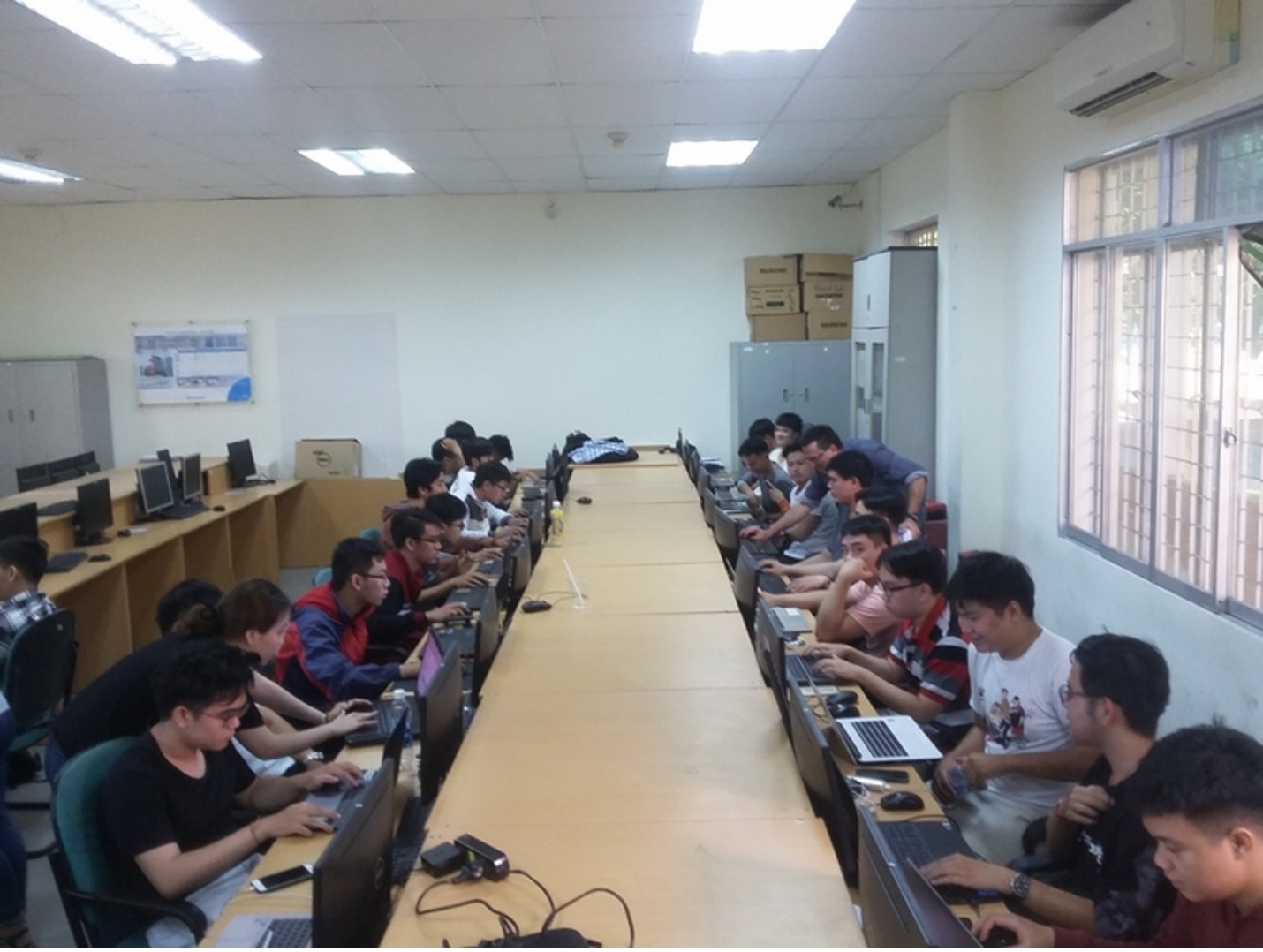
The current computer lab can meet the needs of practical experiments of the following subjects:
- Circuits and Digital Systems
- Continuous time linear system
- Discrete time linear system
- Programming techniques I
- Programming techniques II
- Electromagnetic application
- Computer design and architecture
- IC No. 1 Design
- Design of computer systems
- Design and application of DSP
Robotics Lab (C217)
Robotics Lab is a laboratory for lecturers and students to practice, research and develop different types of Robots. The laboratory is equipped with measuring devices, generators, waveform analyzers ... and modern Robot models.
Currently, the laboratory is capable of meeting the needs of experimental practice of the following subjects:
- Designing Robots
- Robot Model
- Smart robot
Scientific Research Student Office (C305)
The Scientific Research Student Department was put into use in 2012. The laboratory is equipped with measuring devices, source generators, pulse generators, waveform analyzers, etc., which meet the laboratory standards of the partner school.
In addition to serving scientific research, the laboratory is now capable of meeting the needs of practical test in the following subjects:
- Basic electrical engineering
- Circuit theory
- Circuits and Digital Systems
- Electronic devices and circuits I
- Electronic devices and circuits II
- Embedded microcomputer system
Physics and Optics Laboratory
- Optical equipment : Light source, mirror, lens, viewfinder, collimator, polarizer, photocell, filter, condenser, slit, photoresistor, grating, prism, lux meter, intensity sensor luminosity, Michelson interferometer, trigonometry, spectrometer…
- Electrical equipment, electronic : Electrical and electronic measuring instruments, electrical and electronic components, power supplies, rheostats, magnetic circuits, coils, magnets, electromagnetic wave transmitters and receivers, algorithm amplifiers, power amplifiers power, analog and digital osciloscope, low frequency generator, quad-pole network, temperature control experimental equipment, sensors of all kinds, data acquisition and processing software and data, network camera...
- Mechanical equipment: Simple pendulum, torsion pendulum, optical elastic test, tensile, bending, torsion, strain measurement, force measurement.
- Thermodynamic equipment: Calorimeter, thermometer, SF6 isotherm experiment…
Chemistry Lab
pH meter, conductivity meter, spectrophotometer, electronic balance, magnetic stirrer, glassware, pipette, cuvette, burette, distilled water purification equipment, Platine electrode, pH electrode , CRYSTAL II software, SI SIMULIT, molecular model, crystal lattice model...
Automated Production Laboratory
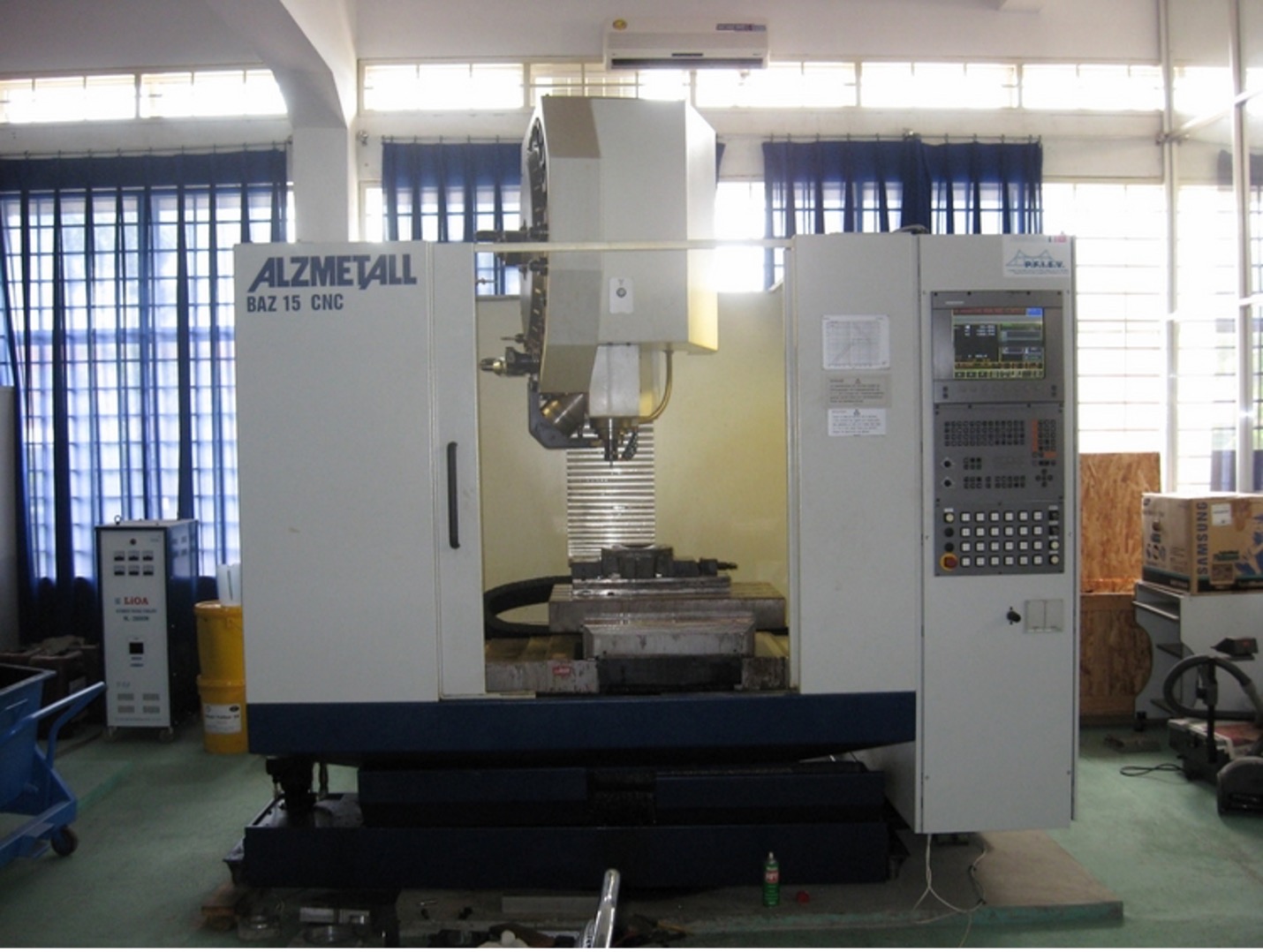

Photo: CNC Milling Machine
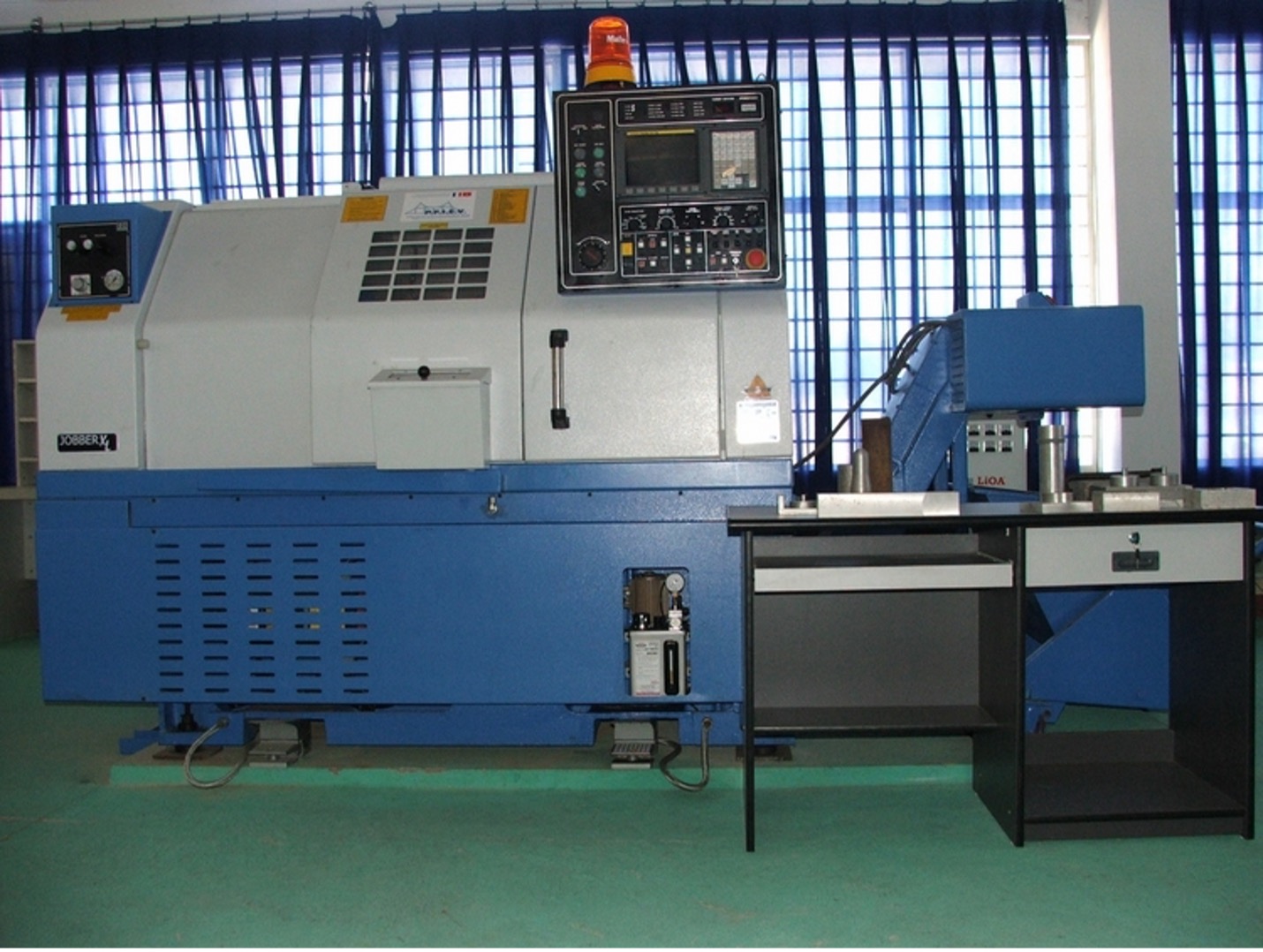
Photo: CNC machine
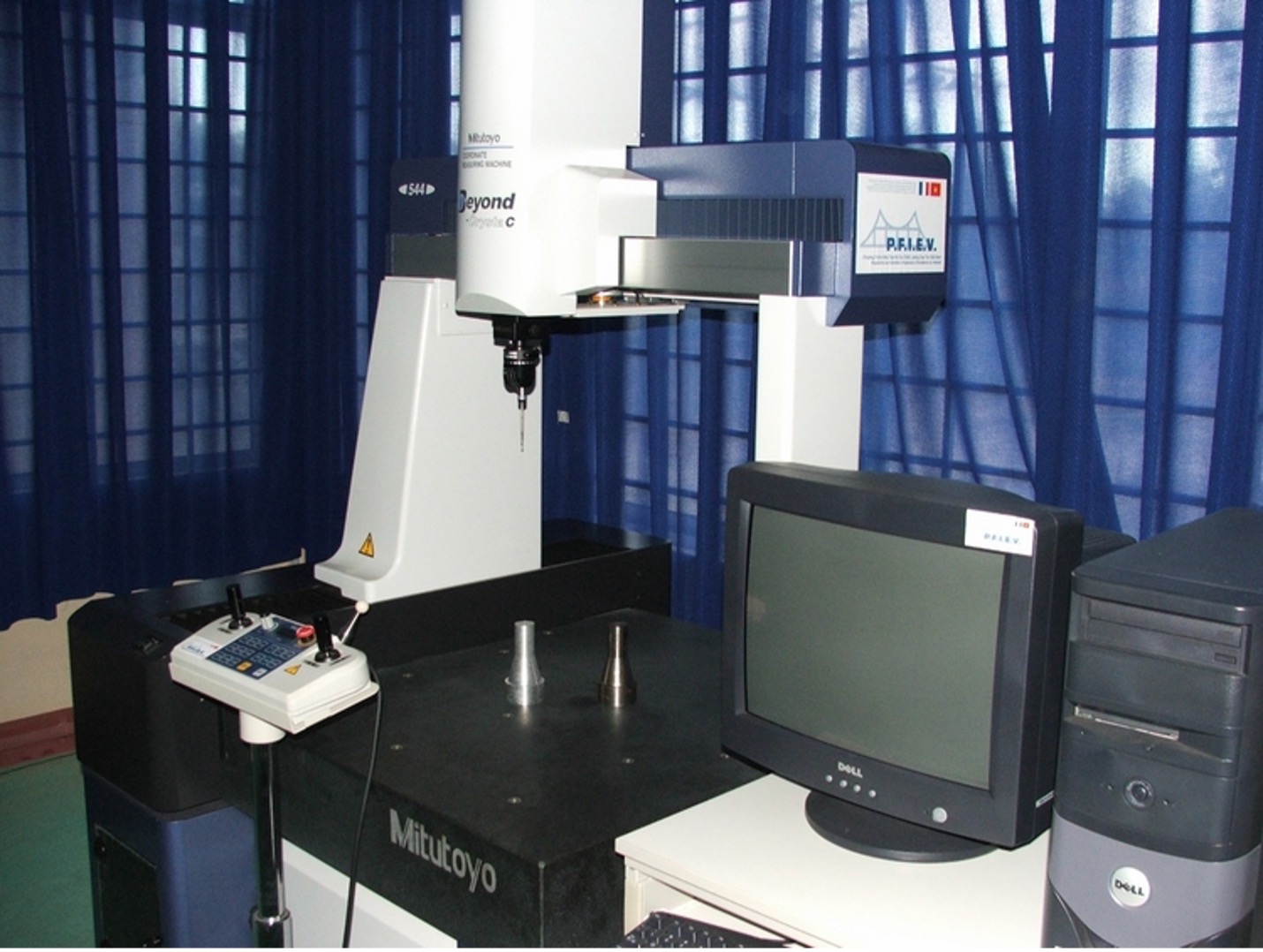
Photo: Hologram meter
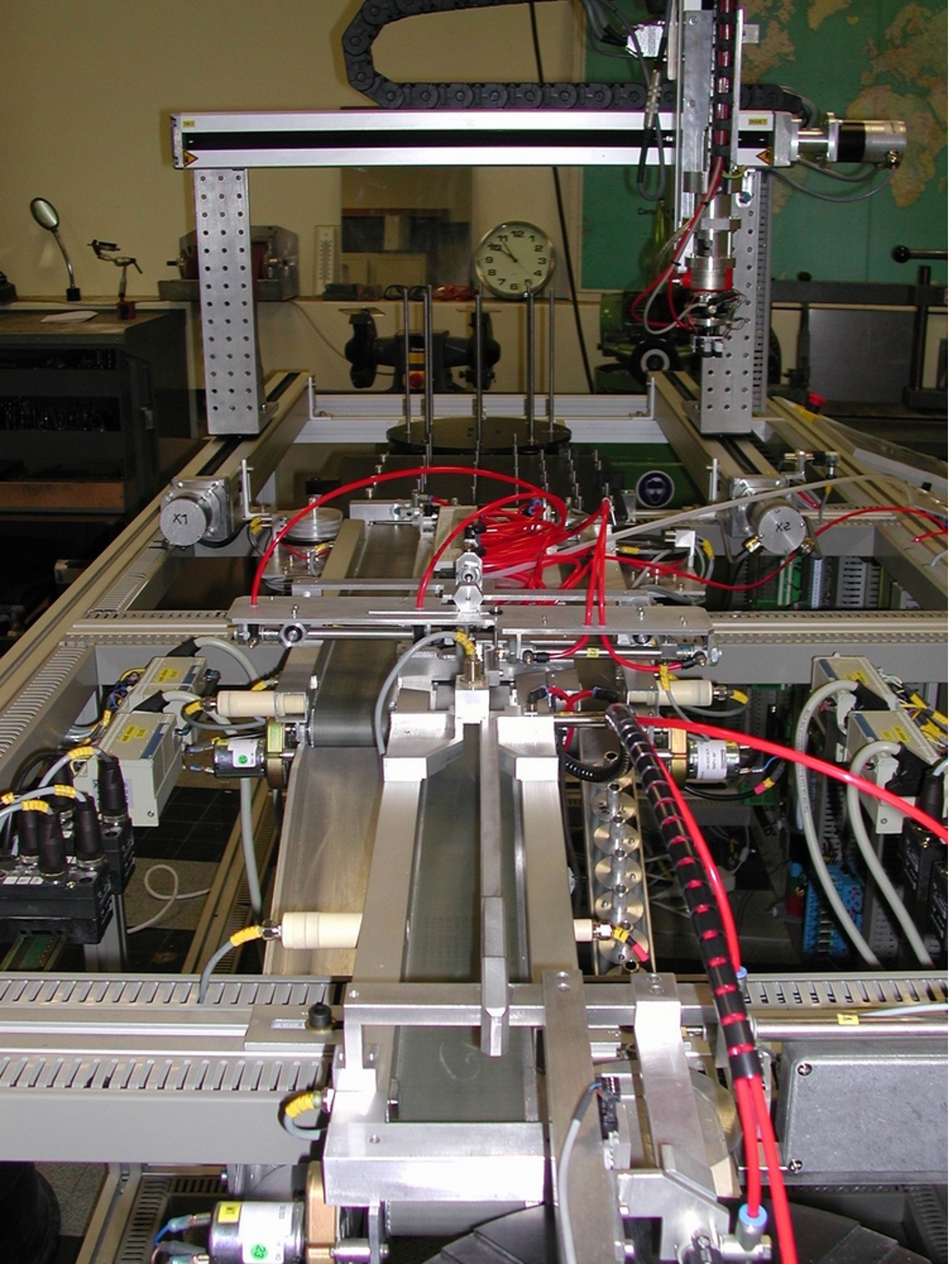
Photo: SAPHIR Automated Production System
There are also other major equipment such as:
- Industrial local area network system
- PLC programming lab table
- Compressed air actuator.
Some pictures of Automated Production Laboratories

 English
English
 Tiếng Việt
Tiếng Việt
